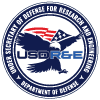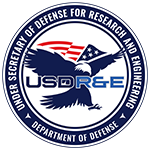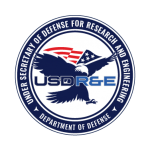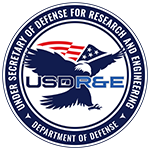Face of Defense
After 50 Years of Service, A DoD Engineer Bids Goodbye
April 9, 2024
In a heartfelt farewell to 50 years of unwavering service, Dr. Steven G. Wax, the acting lead for science and technology within the Office of the Under Secretary of Research and Engineering, has bid goodbye to his tenure, leaving behind an indelible mark on the Defense Department's R&D enterprise. Wax's journey, spanning two decades in the Air Force and subsequent pivotal roles within the DOD, embodies a profound commitment to advancing national security through innovation and dedication.
Throughout his tenure as the assistant secretary of defense for S&T, Wax wielded oversight over a vast array of critical initiatives, including workforce management, research and development centers, and technology transfer programs. His leadership was instrumental in shaping the trajectory of defense research, ensuring the United States maintained its technological edge in an ever-evolving landscape of global threats.
Born in the heart of Chicago in 1950, Wax's journey to becoming a stalwart in defense engineering began with humble roots. Raised in Massachusetts, he pursued his passion for chemical engineering, earning both a bachelor's and a master's degree from the universities of Massachusetts and Illinois, respectively. It was during his formative years that Wax's familial ties to military service instilled in him a profound sense of duty and honor.
In a period when it was common to have a family member who served in the military, Wax was no different. During World War II, his father served in the Navy, and his uncle served in the Marine Corps.
Amidst the tumult of the Vietnam War era, Wax's decision to join the Air Force's ROTC program marked the inception of a lifelong commitment to serving his country. His trajectory took a pivotal turn when the Air Force presented him with an opportunity to pursue a doctorate at Georgia Tech in ceramic engineering, setting the stage for a career defined by innovation and applied research.
After weighing options, Wax accepted the opportunity knowing the degree would open doors.
Although Wax retired from the Air Force as a lieutenant colonel in 1994, it was at that time he opened a new door and started a second career as a DOD civilian employee.
Many doors did open for Wax, which led to a lifetime of service to nation.
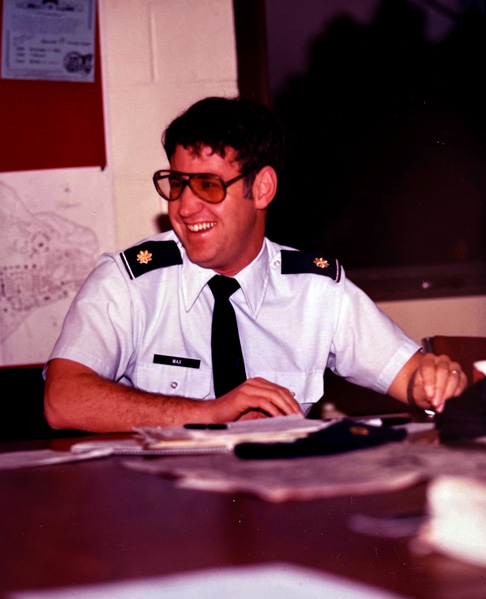
Urges Youths to Consider Service
Growing up, Wax said he always had an interest in STEM.
He said he strongly encourages young people with similar interests to consider the military as a career option, as well as being a DOD civilian or contractor. Being in the military or working as a civilian employee or contractor are some of the best ways of supporting U.S. national security and being a good citizen, he said.
Wax acknowledged that many students with STEM skills and interests will receive offers in the private sector, However, students should look to military service for another avenue to gain experience within science and technology, particularly because there are opportunities for scholarships, tuition assistance and the GI Bill. Wax said he decided to keep working for DOD after his Air Force retirement because DOD gives its workers more autonomy and responsibility-as well as the freedom to be creative and take some calculated risks-than in the commercial sector.
"We take it for granted that technology will be there when we fight the next war, and if it's not there, we'll get it from the commercial world," Wax said. "History has taught us many of those advancements came from the Defense Department."
Commercial off-the-shelf items sometimes prove useful to the military, but many critical capabilities for military use are not available from industry, highlighting the critical role of the DoD science and technology community.
"The foundations for research and development are prioritized across the DoD to ensure we have modernized equipment and facilities to test our capabilities, but also we must invest in our workforce development," Wax said. "Investing in the future workforce by building skills at a young age is critical for our long-term national security."

Leadership Philosophy
Wax said some of his mentors taught him the importance of team building. Sometimes, team dynamics are such that close supervision isn't necessary. The best thing to do in these cases, according to Wax, is to get out of the way, and give team members the room to succeed, while also providing them protection from supervisors who might stymie innovation.
Occasionally, managers need to step in and ensure projects are going the way they should. This involves good, two-way communication with realistic goals and expectations, he said.
In his final role at the Pentagon, Wax knew he was surrounded by a team of dedicated professionals, committed to the principles within the National Defense Science and Technology Strategy.
"It's really important to have people on the inside who are competent, passionate about defense and passionate about science and technology, because otherwise, the right things don't get done right," he said.
While Wax has worked in the laboratory as a research engineer, most of his career has been spent leading teams with titles such as chief scientist, technical advisor, director and program manager at numerous Air Force and defense organizations.
Director of the Air Force Office of Scientific Research, Dr. Kevin Geiss, who until recently worked for Wax as the Deputy Assistant Secretary of Defense for Science and Technology Futures, said Wax's leadership philosophy allowed him to perform his best.
"It has been said that there are no limits to what one can achieve when your boss has your back. I certainly felt empowered as part of Steve's team. Yet, it seemed like Steve was so much more than support. Often, he was out in front, breaking down barriers and taking the first arrow. So, I guess, you could say he had all angles covered for us," Geiss said.
Wax also served as a mentor to the current DARPA director.
"I am fortunate to count Steve as a mentor," said Dr. Stefanie Tompkins, director of the Defense Advanced Research Projects Agency. "As others have undoubtedly experienced, among his distinguishing characteristics is his ability to help others bring forward their best ideas, and, when necessary, provide the guidance to set them on a different course. His commitment to advancing innovation across seemingly disparate science and technology disciplines has had a lasting influence on DARPA and all who benefited from his service to the country."

Career Highlights
Early in Wax's career, he had the opportunity to work at the Defense Advanced Research Projects Agency while serving in the Air Force, which led to many projects that have advanced the systems warfighters use today.
From 1983 to 1986, Wax was a program manager at DARPA, developing ceramics for use in high temperature materials, which gave aircraft higher performance and efficiency. When he retired from the Air Force, Wax returned to DARPA as a civilian from 1994 to 2006, first as a program manager then, ultimately, as the director of the Defense Sciences Office overseeing 22 program managers."
While at DARPA he was instrumental in initiating a program to develop improved prosthetics for wounded troops.
This prosthetics project took place at the height of the Global War on Terror. Many servicemembers were losing limbs in Iraq and Afghanistan from improvised explosive devices, so Wax felt passionate about the need for improved prosthetics.
"We brought together advances in microelectronics, actuation, and neurology," Wax said "The devastating impact that IEDs had our servicemembers was felt across the nation. I will forever be proud to have been a part of because the quality of life for service members vastly improved with this new technology."
Many projects which started at DARPA, such as Wax's prosthetics research, have had a lasting impact outside of the military as well.
Lasers, stealth technology, artificial intelligence, the internet, and, among others, miniaturized GPS were advancements that benefitted from government funding.
Despite the rapid pace of development and astounding breakthroughs Wax witnessed at DARPA, there were some areas of concern he had with the science and technology community. One of Wax's key frustrations was that industry - particularly small companies and startups-- see impediments to obtaining defense work and long waiting times for their employees' clearances.
However, things are moving in the right direction under the leadership of Deputy Defense Secretary Kathleen Hicks, he said.
"I am confident that the investments in the department's science and technology program we make now, and in the future, will plant the seeds of new capabilities for defense and open up brand new commercial markets we have yet to imagine." Wax said.

Farewell and the Future
As Wax's career at the DoD ends, his dedication to mission and technical expertise will be missed across the department.
Under Secretary of Defense for Research and Engineering Heidi Shyu, to whom Wax reported during his tenure at R&E, said she most appreciated Wax's passion for public service.
"With his acumen as a retired Air Force officer, Steve could have done anything with his career," Shyu said. "Yet, he chose to serve America for a second time. That decision has had a lasting impact on our military's technological edge and serves as an inspiration for young people to choose a lifetime of service."
In his farewell to employees, Wax urged the next generation of STEM enthusiasts to consider the military as a pathway to service, emphasizing the unparalleled opportunities for growth and impact within the realm of defense research. His impassioned plea resonated with a call to arms, beckoning a new wave of talent poised to safeguard the nation's security for generations to come.
Wax's awards include the George Kimball Burgess Memorial Award (material science) and the Secretary of Defense Medal for Outstanding Public Service.
His post-retirement plans include spending time with his wife Maura in Reston, Virginia, where he'll have more time for hobbies such as hiking and playing guitar. Wax also enjoys playing tennis, most often with his grandchildren as well as creating computer game programming for them. Wax said he's been blessed with having a great career and working with wonderful people.
Office of the Under Secretary of Defense,
Research and Engineering (OUSD(R&E))
3030 Defense Pentagon, Washington, DC 20301-3030
Contact Us
Contact Us
Information for the USD(R&E):
Contact OUSD(R&E) Staff
Social Media: @DoDCTO on Twitter
For website issues: Contact Webmaster
